Doing customer interviews is one of my favorite activities. My approach is different from what most companies do and what most people are used to reading. Usually, when a business does such an interview, they do it because they need trustworthy content on their blog. It’s a clever way of showing prospective people that their products or services bring real value. Therfore, others should follow the line and spend some bucks.
I never did these interviews with such an intention in the back of my mind. I’m not fingerpointing anyone, I genuinely believe it’s quite a good strategy.
However, my goal is different. I talk with customers in this framework because I aim to discover authentic stories behind the curtain that folks can relate with. On the other hand, Andrei, my teammate, makes a similar effort by running video calls on the technical side, often finding great insights about the experience people have with our themes.
As a storyteller, I’m far more interested in finding the inner-why than crafting an article tailored to match the SEO game.
oana
I value the narrative per se. I’m not driven by influencing any algorithms, whatever that means today.
These conversations are focused on the human who runs a blog or a website built with our WordPress themes. I am keen to hear more about their background, what influenced their choices along the way, what made them choose a particular path.
John is one of those guys that intrigued me. I appreciate that he was brave and he uses a product made with publishers in mind to create a digital home for his photography work. I guess I will always admire and have a soft spot for people who zig when most of us zag.
Some life experiences shaped John’s life and switched his attention from the corporate world to the creative one. By leaping, he could reclaim himself, put his life back on track, and see the world through a different lens.
I hope that the next lines will bring you hope and a bit of bravery. It definitely worked for me.
Oana
What’s your story, John?
John
I am originally from Toronto, Canada, that’s where I grew up, and then I also went to the University of Toronto. I lived in or around Toronto up until January 2018, when I moved to China.
My main passion is photography, but I also love listening to music, watching movies, and learning languages. Oh, and I’m a huge Raptors fan!
Oana
How did you land working in the corporate world, and how was the experience?
John
My major in university was Economics; I originally had a job at a major Canadian bank, selling investments, mutual funds, mortgages, etc. But I eventually lost interest (no pun intended!), and I didn’t find it to be rewarding, so I decided to quit.
I went back to school for a six month intensive IT networking program. I was always good with computers, so it was a natural fit.
I really enjoyed working in IT, and I picked many valuable skills. I got to experience the highs and lows of what it’s like working for both a fast-growing young tech company and a large global company.
Oana
What made you consider web development?
John
After such a long time working in IT (including twelve and a half years with the global company I just mentioned), I was ready for another change. When I decided to leave the corporate world, I wasn’t sure what I wanted to do next. But I knew I wanted something that would be more creative and something that would allow me to be more flexible in where I worked.
I chose web development and had the dream of working in small coffee shops, travelling around, you know, the whole digital nomad lifestyle. For a year or two after the web boot camp finished, I tried freelance web development, but I didn’t make enough money to sustain myself, let alone travel the world.
Even if you have all the skills in the world (which I definitely don’t have!), if you don’t market yourself well, freelance work is challenging. So I decided that I needed to find a full-time job again, but this time I wanted to move to China.
Oana
What drove you to take the photography route?
John
The spring of 2011 was a very formative time for me. During that time, my mother suddenly passed away and my ex and I went through a separation. Both of those events really made me start to think of life differently.
I began to more embrace the ‘life is short’ mentality.
john
When I was young, I went through a couple of phases where I was interested in photography, but then it went away for many years. In the early 2000s it came back a bit, with the advent of digital photography. But it was still more just for fun.
Then in 2011, with my new life outlook, I decided to get a bit more serious about it. I took a couple of classes to reinforce the knowledge that I had gained on my own. I started going on photo walks with groups and started being more intentional with my photography. Near the end of the year, I entered a photo contest and won! I was so in shock, but it really inspired me to keep learning.
Oana
How does it help you become a better person?
John
Usually, I’m very modest and definitely not the most confident person in the room.
But when I have my camera in my hand, I feel almost like I’m another person. I walk differently, I see the world differently, I’m not as shy.
john
It’s like holding the camera gives me permission to be different than normal. I’m not afraid to see what’s behind that door, down that alley, or up those stairs when I’m holding my camera.
As well, though this may sound funny, but I believe it’s also helped me in terms of health. Everyone who knows me knows that for sure I’m not a gym person 🙂 but with my camera, I’ve done so much walking, hiking, and climbing, particularly in the last two or three years since I moved to China. Carrying a heavy backpack full of camera equipment is good exercise!
Oana
What did photography teach you so far?
John
It’s taught me to see the world differently, in a couple of ways. From a high level, I’ve learned about various cultures and some of Earth’s most amazing landscapes. And from a low level, it’s taught me to look more closely at the scenes we see every day.
Now I can’t stop myself from noticing how a shadow hits the ground, or how there are so many patterns around us.
It’s taught me to look for interesting things where most people assume there is nothing. People often ask me—”where did you take that photo?”, and then when I tell them, they say, “oh I’ve been there ten times but I never noticed that.”
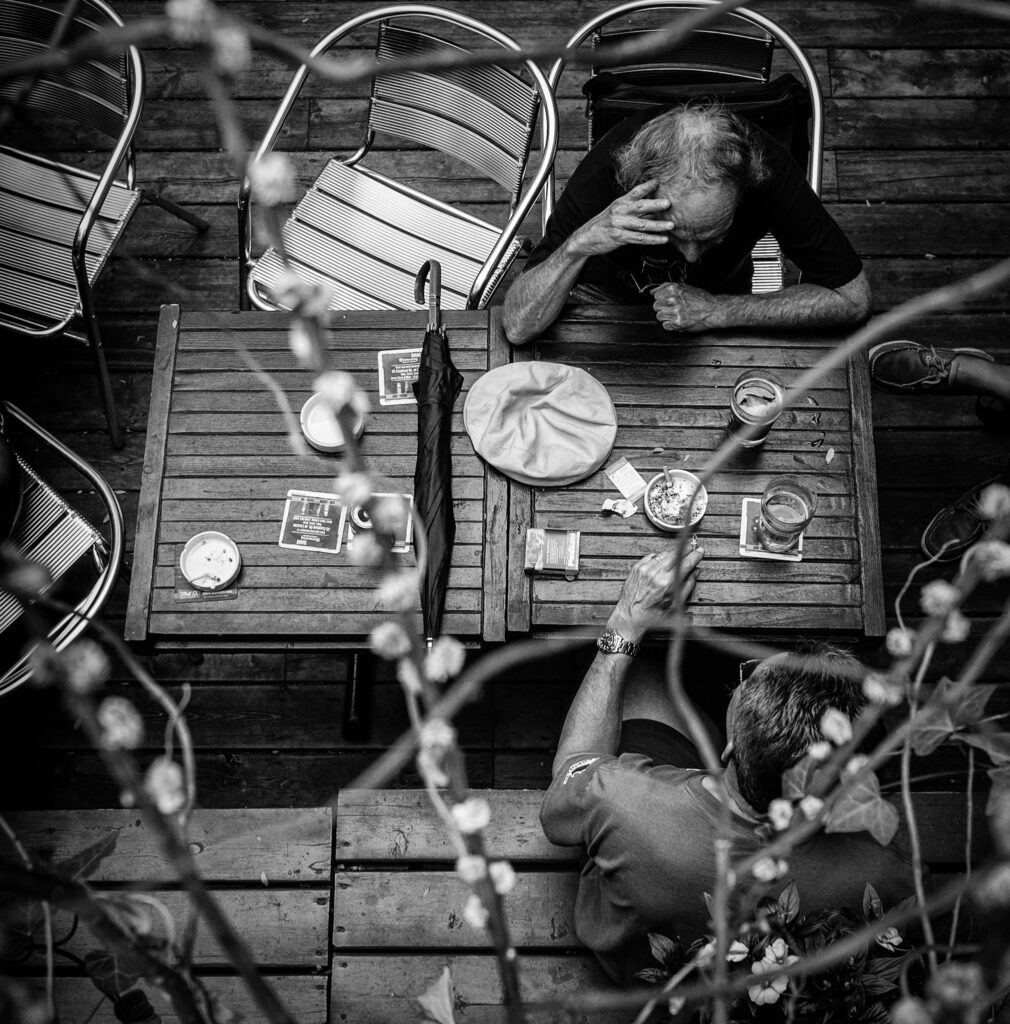
Travelling has been one of the best ways to enrich my knowledge. I credit my love of photography for both allowing me and inspiring me to travel, and I hope to continue to do so for many more years to come.
Oana
What’s the most intimate frame you captured through the lens?
John
I would say maybe one of the photos I took when I was in Hohhot, in China’s Inner Mongolia Autonomous Region. It was during Ramadan in 2018, and I was in the Muslim area walking around when I noticed people entering the mosque for prayer.
I stood outside and observed for a short time. I really wanted to take some photos, but I wasn’t sure if I should or even if I would be able to. Eventually, I showed my camera to someone there and asked if I could, and he smiled and nodded.
I ended up staying in that whole area for quite a while that night and took a lot of photos. During the evening, I had some simple conversations with a few people; they were all so friendly and curious about my photography. It was a very memorable night!
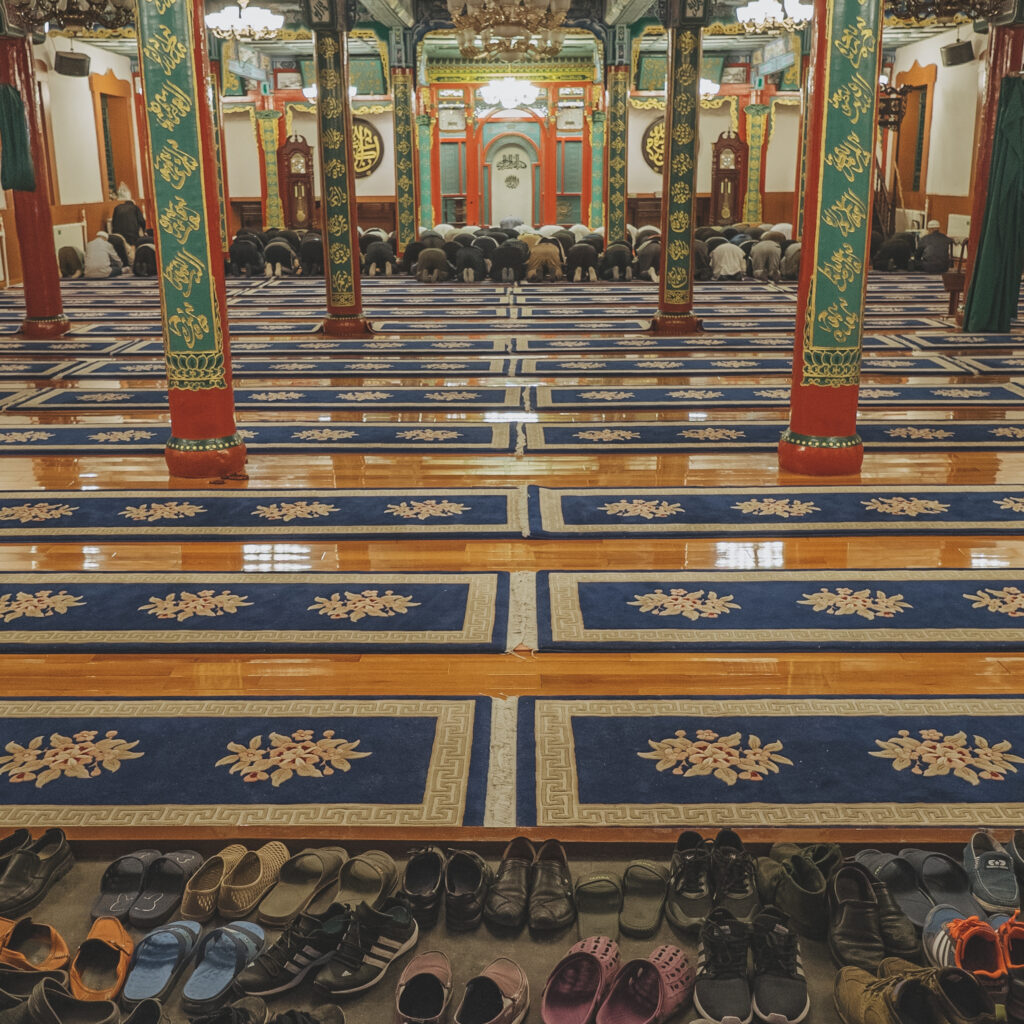
Oana
How does traveling feel when most of us still struggle with COVID-19?
John
I haven’t done too much traveling this year, only a few places here in China. But I understand the situation we are all in, so I’m thankful that I’ve even been able to do that.
In 2018 and 2019, I was spoiled; I was able to visit so many amazing places, either for work or for pleasure. But then from last October to this April, I didn’t go anywhere; obviously, part of the time was due to the lockdown. In April, I moved to Yangshuo, in southern China, for three months to take Chinese classes.
I really love Beijing, but I was excited to get away for a while. Although I had an incredible time in Yangshuo, I was definitely missing Beijing, so I was happy to return in early August, after spending a bit of time in Guilin and Nanjing after my classes finished.
I think one of the lessons we’ve all learned this year for the future is not to postpone your travels. If you want to go somewhere, just go.
Don’t wait for the perfect time of year, or until you’re not as busy or whatever other reason. We never know what’s going to happen in the future.
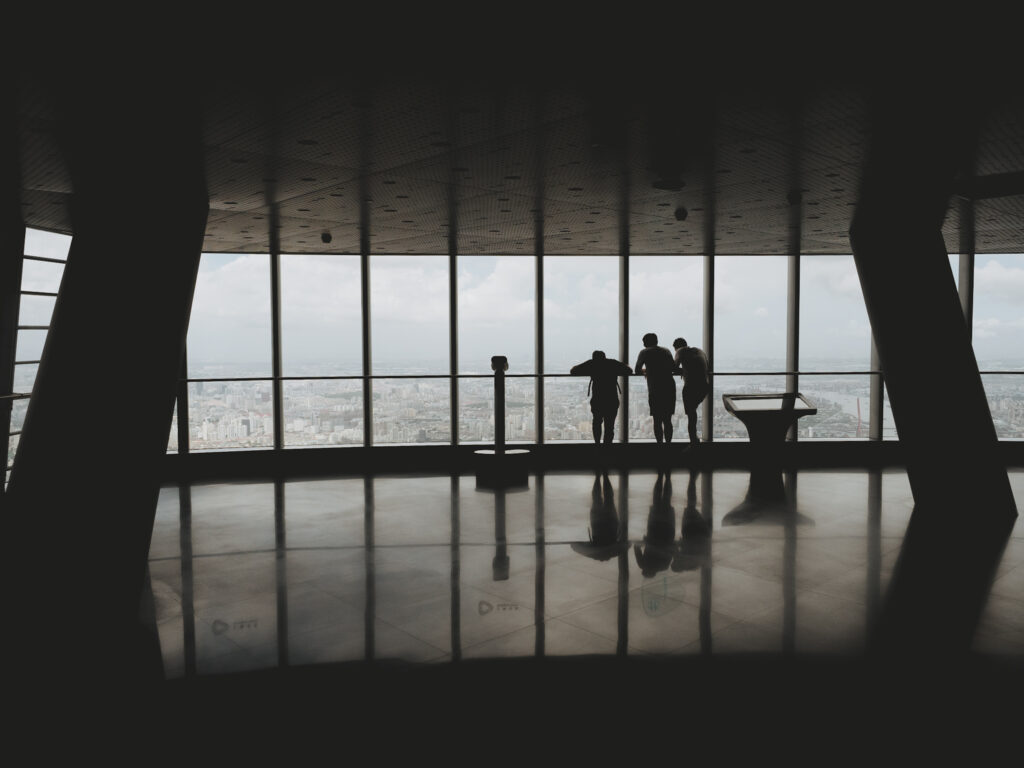
Oana
In which way does China impact your beliefs and values?
John
In some ways, part of my way of thinking has evolved, it’s been nice here to see the blending of the Eastern and Western mindsets.
Growing up in the West, there are certain misconceptions about what life is actually like here in China. In spite of what gets written in various places about the differences between East and West, there are some things that are common.
Everyone wants the same thing, a fulfilling life, a nice meal together, sharing some laughs, talking about the latest movies. Everyone wants what is best for their children, both for today and for their future.
john
I was pretty minimalist before I ever moved to China, but before I left Canada, I sold quite a few of my possessions. Now having lived in China for two and a half years, with not a lot of possessions, it has really helped me discover what truly makes me happy. I used to think, oh, I couldn’t live without such and such, but now that thinking has been reset. Though it would be difficult to live without my camera and my Apple gadgets 🙂
Moving here was the best decision I could have made, it’s been amazing for my personal growth. I’m looking forward to spending many more years here!
Oana
How do you become better at your craft?
John
The obvious answer is practice, practice, practice. There is much more to photography than just pointing your camera at something and pressing the shutter button. One of the things that I love about photography is that there is both a technical and a creative aspect.
On the technical side, there is always a new camera with new features or faster lenses. But the most important thing is to really learn the core components of photography, starting with aperture, shutter speed, and ISO. And don’t only watch videos or read books about them—make sure you practice them on your own. Learn how to change those settings on your camera, and see how changing them affects your photos.
On the creative side, we are continually being shown incredible images. You can look through your Instagram feed for inspiration. You can go to your local bookstore (well, if you can find one), and flip through pages of photo books. After you have done photography for a while, you may find that you gravitate toward a certain style. Maybe you like portraits, landscape, street, black and white, or maybe you like photos of flowers. Whatever you enjoy, try to put your own spin on the type of photos you create.
But aside from all that, the most important things you should be training are your eyes.
You could be in the best location, with the best camera, but if you don’t train yourself to look for good photos, it won’t matter.
john
You may think your daily walk to the subway or whatever is boring. But if you take the time to start looking around with a photography mindset, you’ll notice things you never saw before.
Oana
Do you feel the pressure of taking photos regularly because of FOMO?
John
Definitely! I never feel like I’m taking enough photos. Especially in my own city, Beijing. When I travel, having the constraint of only being in a place for a few days, I feel like I need to make the most of every moment, so I try to spend as much time as I can taking photos.
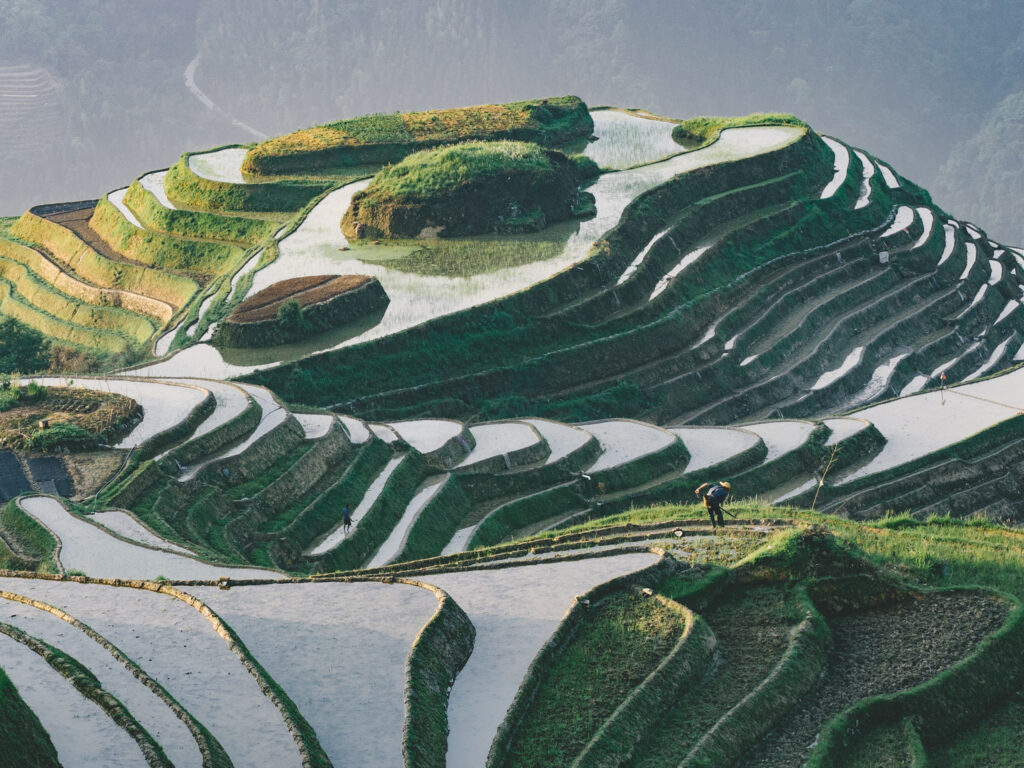
But then in my own city, I take it for granted,—”Oh, I can visit that place next weekend instead, this weekend I just want to relax.” A great example of this is that although I’ve been in Beijing for over two and a half years, only last week did I finally visit the Great Wall for the first time, even though it’s almost in my backyard.
Oana
In the end, what makes a good photo?
John
To me, although maybe it sounds cheesy or sappy, if a photo makes you feel something, then it’s a good photo. Like any art, photography is subjective, so what one person considers a great photo, another person may not.
As well, time and experience shape what we feel. Maybe today there is a photo that you don’t really think anything of, but then later in life, when you look at that same photo, you may see it in a totally different way. Just like there are songs that when you were younger, you didn’t appreciate. But now, after growing up more and having more life experiences, when you hear them, you think, wow, what an amazing song.
Another thing is that people evaluate photos in different ways. Some people like the technical aspects of photography, others the emotional aspect.
john
Even though a photo may not be considered technically correct by some people (e.g., it didn’t follow the rule of thirds, or it’s a bit out of focus), it still may elicit strong emotions, which is all that matters.
Oana
Are there any books you read, podcasts you listen, movies you watch that shape your becoming?
John
Generally, I prefer to read biographies (e.g., Steve Jobs by Walter Isaacson) or books about the past, sometimes the ancient past (e.g,. Sapiens by Yuval Noah Harari) and sometimes the recent past (e.g., The Innovators by Walter Isaacson).
I listen to way too many podcasts, mainly about photography (e.g., The Digital Story, Street Photography Magazine, Master Photography), movies (e.g., Beyond the Screenplay, The Big Picture, The Rewatchables), and technology (RelayFM Network podcasts).
For movies, I like so many directors—it’s hard to choose! Maybe you can have a look at my Letterboxd.
It’s somehow healing and reassuring to see how many internal resources John has and how he explores them in various tempos. His balanced way of discovering photography and different places around the globe shows both confidence and eagerness to understand more.
In the end, the beauty of a photo lies in the beholder’s eye, right? However, it also changes during a lifetime, depending on our becoming. In some senses, this could mean that photography has the power of influencing people eternally and making them reconsider a bunch of emotions, places, and experiences of all kinds. Quite a powerful tool to handle, right?
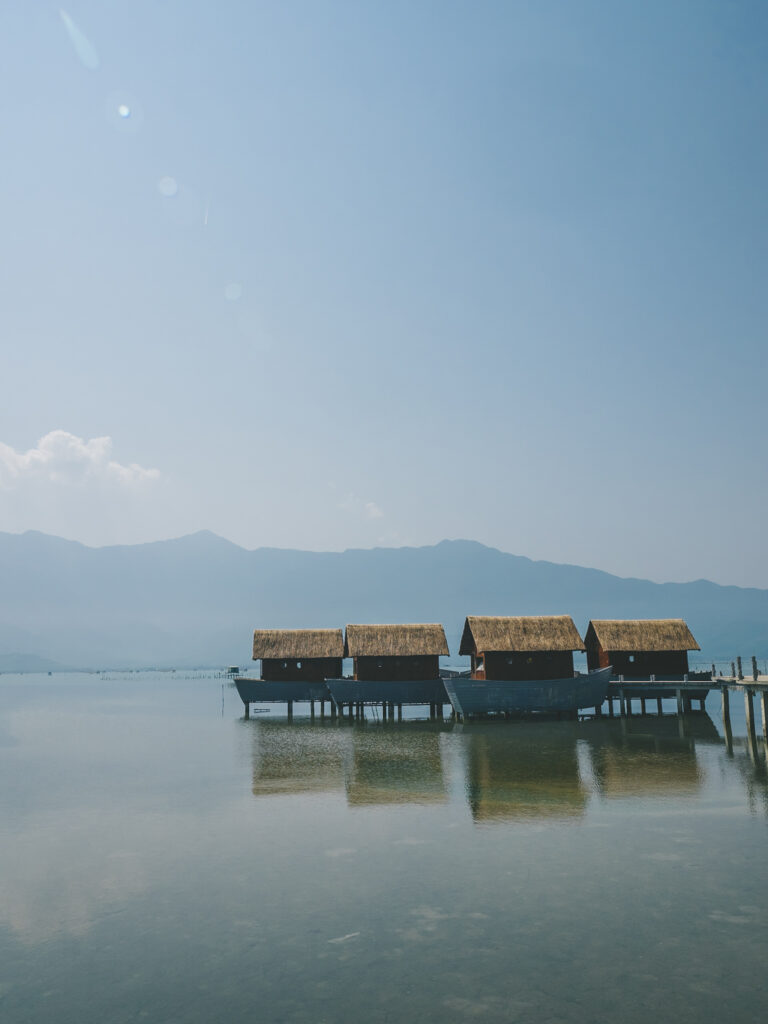
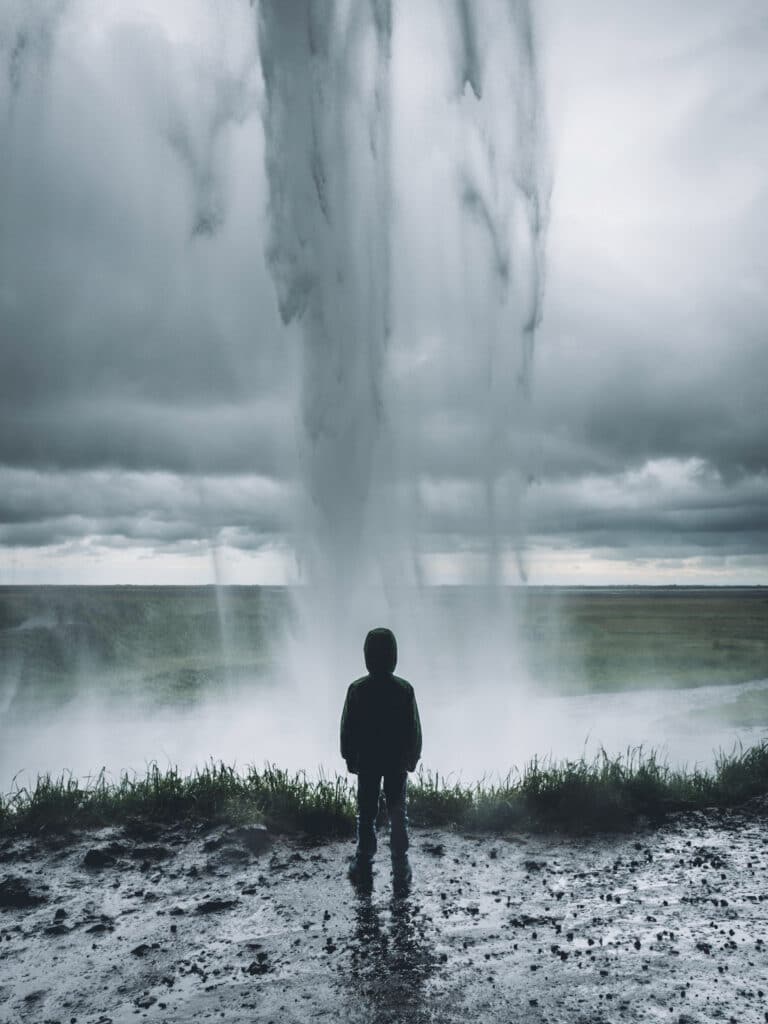
Start the conversation